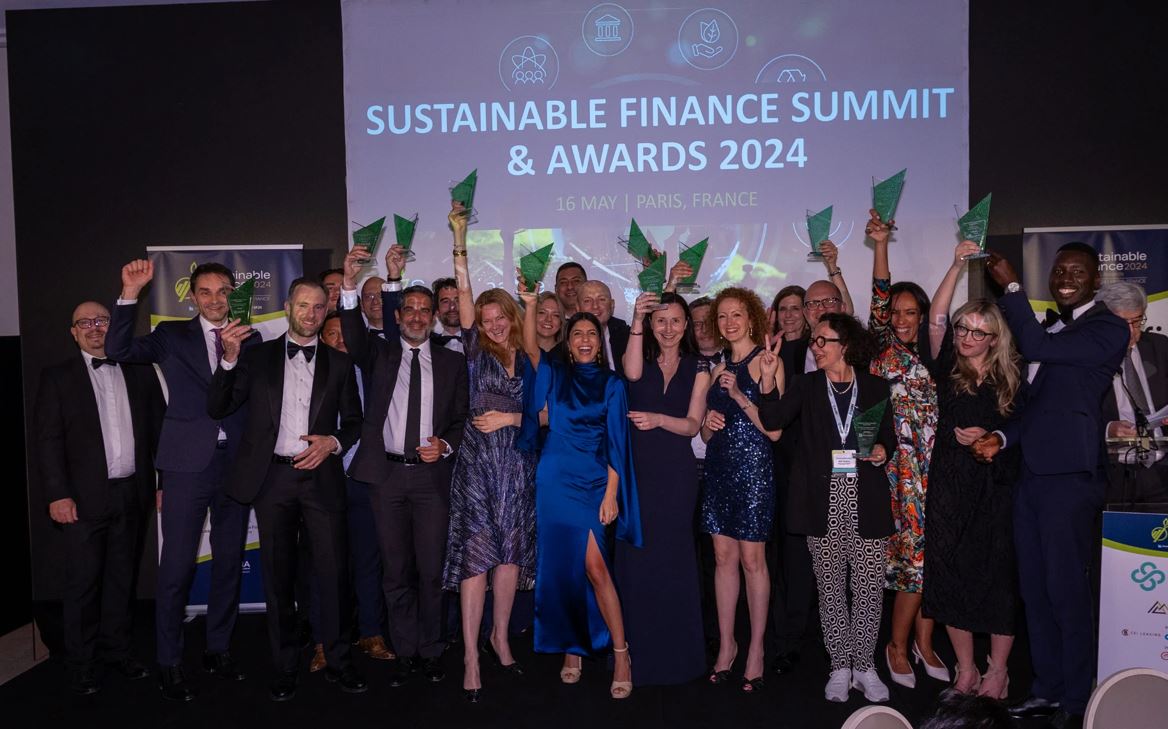
On May 16, Paris became the epicentre of sustainable finance as it hosted the Sustainable Finance Summit & Awards 2024. This event drew delegates from across Europe, eager to delve into the evolving landscape of transition finance.


The summit, featuring over 20 distinguished speakers and thought leaders, was a platform for sharing strategic insights into the complexities and opportunities within sustainable finance. The day’s agenda was filled with addresses, fireside chats, and panel discussions, highlighting the collective need for innovative strategies and robust governance to drive the green transition. The event concluded with an awards ceremony, where 12 prestigious accolades were presented to top financial institutions for their commitment to sustainable objectives. BNP Paribas received the top honour: Best Sustainable Finance Company of the Year.
Below, three participants summarise their key message and takeaways from the day’s proceedings.




Keynote: investigating Europe’s sustainable behaviour
The summit started with a keynote address by Sarah Kemmitt, Secretariat Lead of the Net-Zero Banking Alliance, titled “Investigating Europe’s Sustainable Behaviour.”
Kemmitt set the tone for the event by highlighting the immense business opportunities the transition to net zero presented. “The capital exists to finance the transition,” she said, “but it will require policymakers, corporations, and financial providers to work together to redirect it towards clean, low-carbon technologies and business models.”
Kemmitt’s address emphasised the proactive role of the Net-Zero Banking Alliance in supporting its members through the net-zero transition, reflecting the collaborative spirit needed to achieve these ambitious goals.
How well do you really know your competitors?
Access the most comprehensive Company Profiles on the market, powered by GlobalData. Save hours of research. Gain competitive edge.

Thank you!
Your download email will arrive shortly
Not ready to buy yet? Download a free sample
We are confident about the unique quality of our Company Profiles. However, we want you to make the most beneficial decision for your business, so we offer a free sample that you can download by submitting the below form
By GlobalData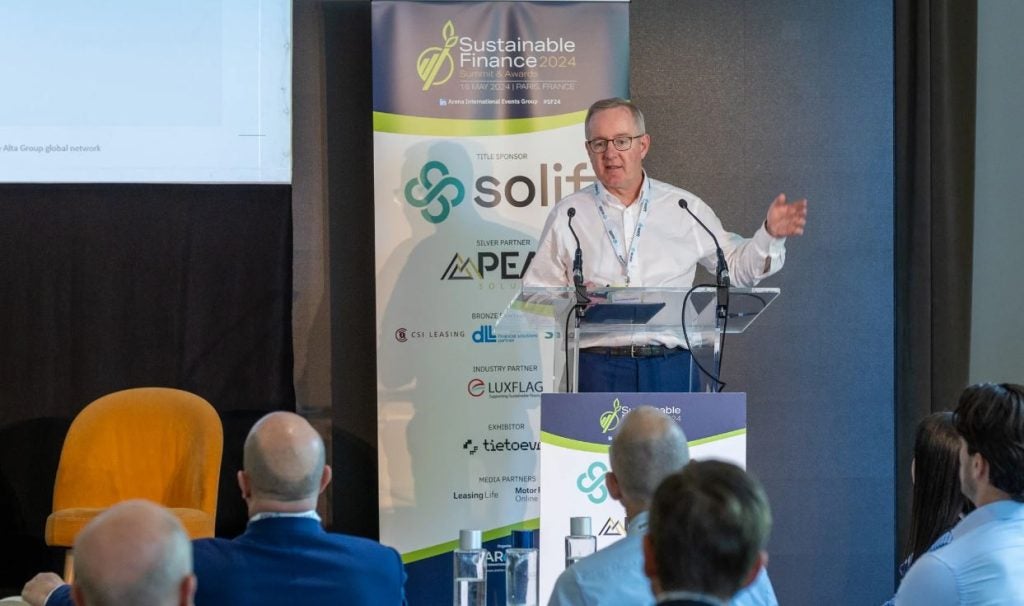

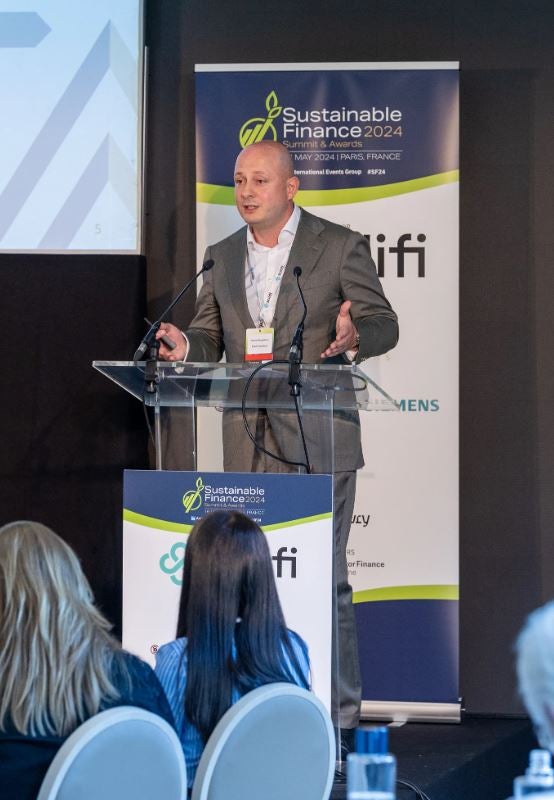
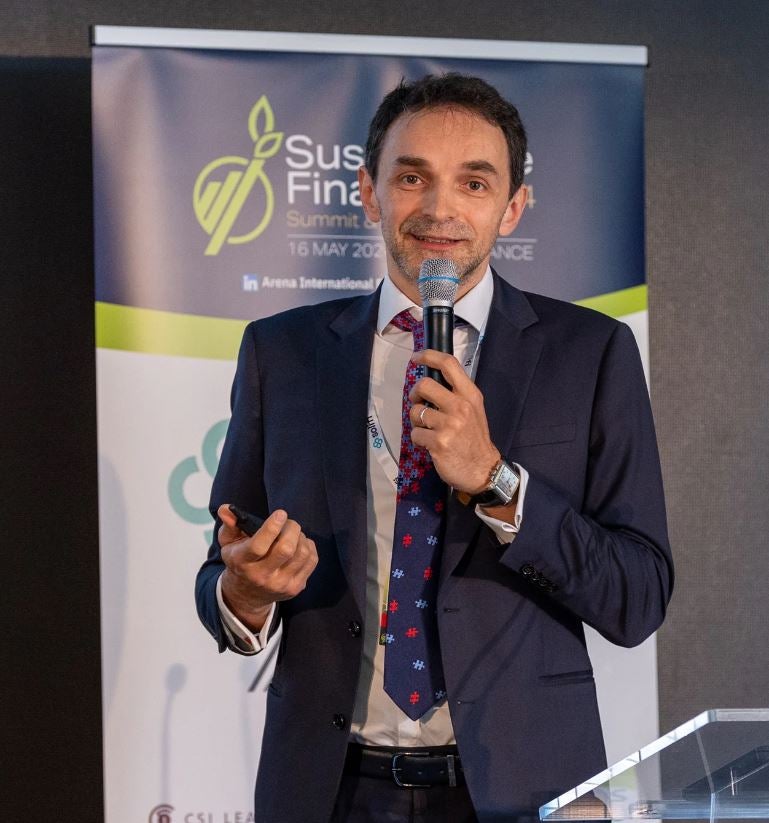
Strategic execution: defining an ESG portfolio
Ivan Bagaliyski, Director of Strategy and ESG Value Proposition at Solifi, took the stage to discuss “Defining and Executing an ESG Portfolio Strategy.” Bagaliyski highlighted the significant growth opportunities for auto and equipment funders in embracing ESG. He introduced Solifi’s ESG Portfolio Strategist SaaS application, designed to tackle key challenges in reporting, operationalising ESG, and customer decarbonisation.
“We have invested significant time, effort, and resources to understand the key challenges that asset funders face in the ESG area,” he explained. The application helps standardise and enrich existing data, making accurate financed emission calculations possible and assisting clients in modelling long-term CO2 reduction goals. Bagaliyski stressed the crucial role of technology in bridging the gap between net-zero aspirations and practical ESG strategy execution.

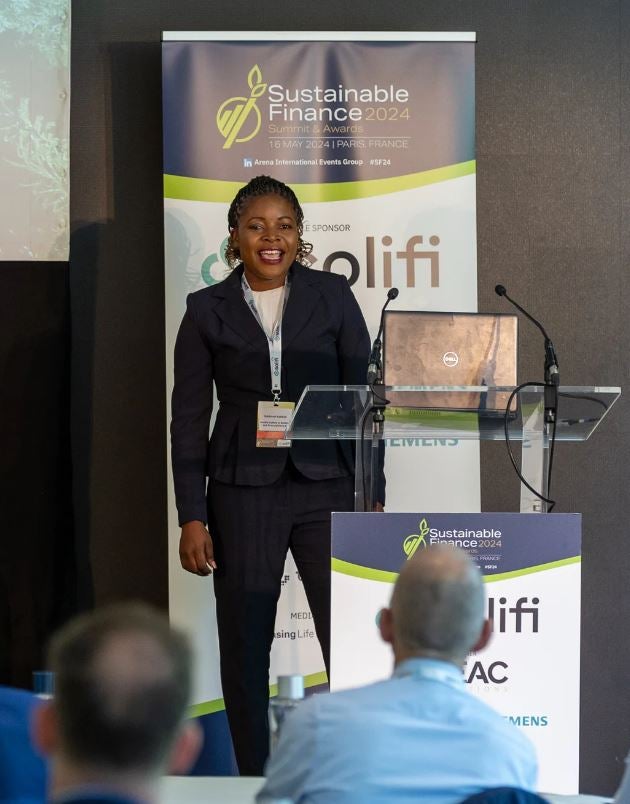


Corporate sustainability: educating and inspiring change
The closing panel discussion, featuring Daniela Villegas, Business Development Director – Lease at ABN AMRO Lease, UK Branch, focused on corporate sustainability culture and the importance of client education.
Villegas emphasised the power finance professionals have to drive real change. “It’s important to find ways to help our clients in their transition to net zero as well as to more sustainable business models,” she said. Villegas pointed out that the high cost and relative newness of sustainable assets can be challenging, but also noted the long-term benefits for both the planet and future generations. Her insights underscored the potential to build stronger relationships with clients through sustainable practices.
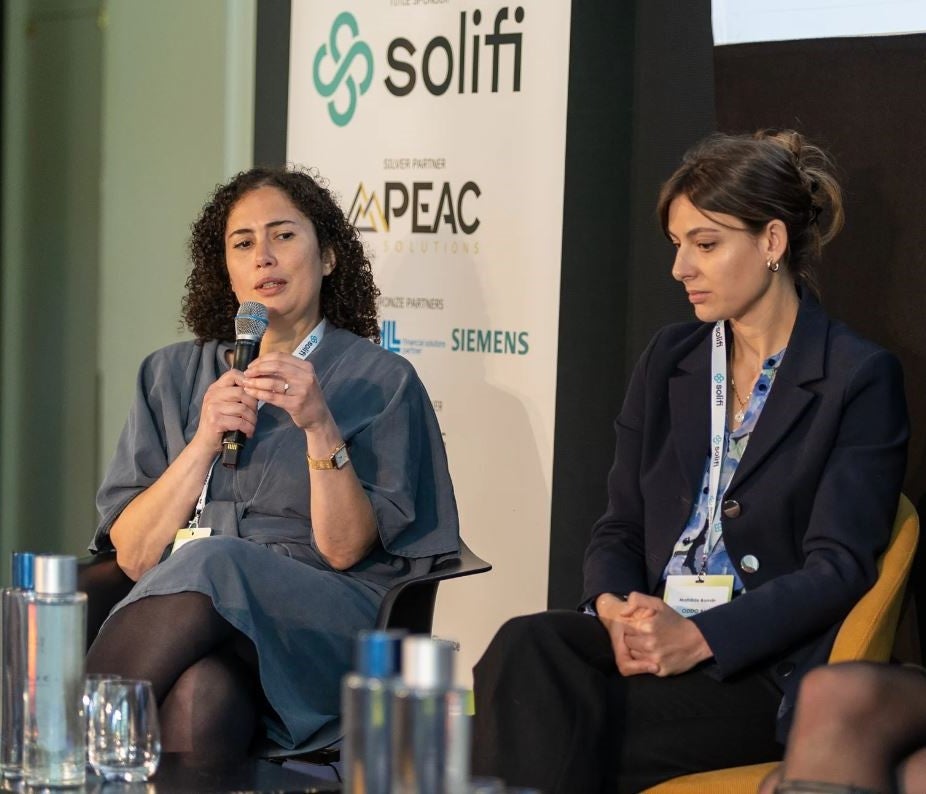

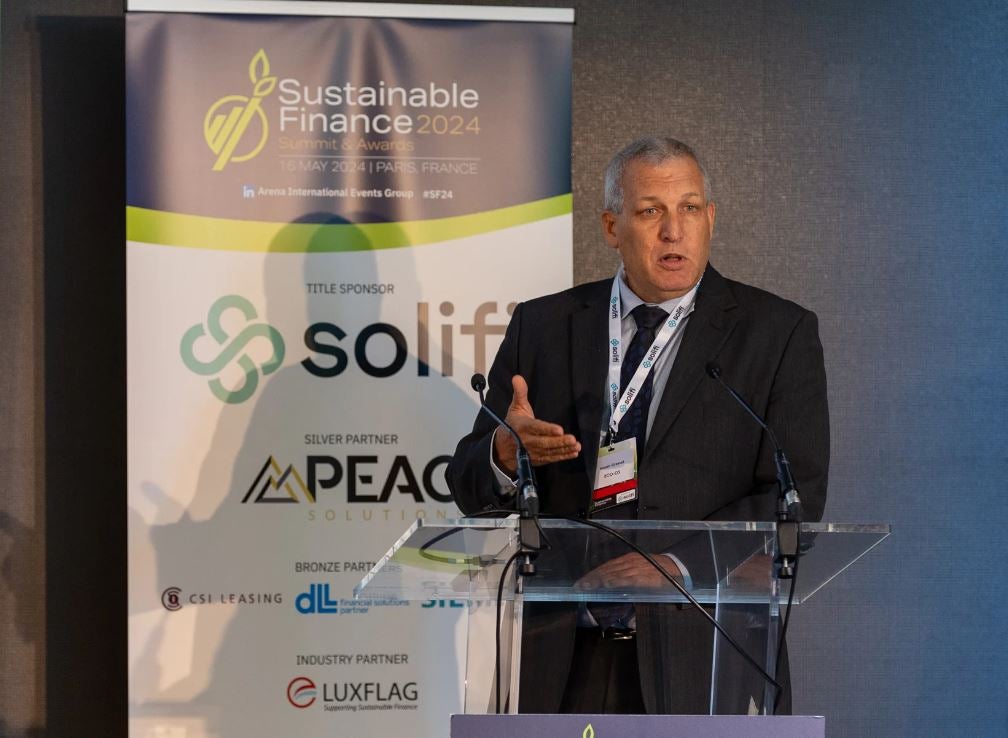
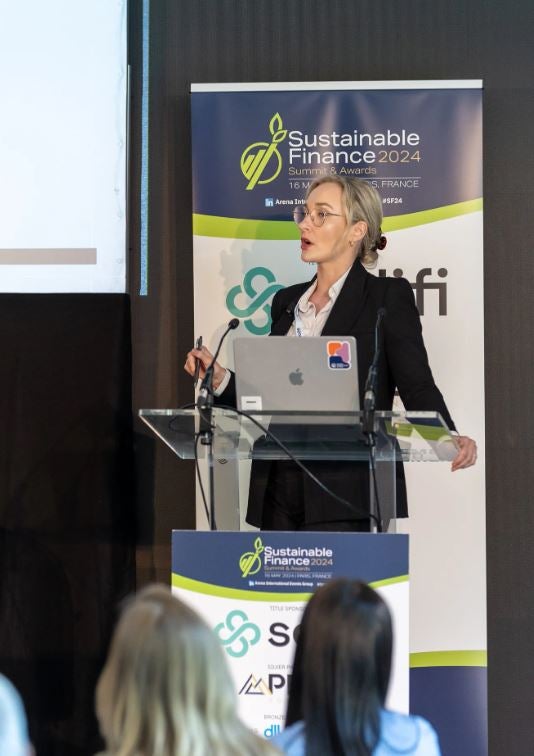
Opportunities and Strategic Pathways
Despite the challenges, the summit underscored several opportunities for advancing sustainable finance. The transition to clean power can extend access to affordable, clean energy globally, transforming health outcomes and reducing emissions. Electrification of transport, cooking, and heating presents substantial economic, environmental, and health benefits. However, Kemmitt stressed that this transition must be managed carefully to avoid stranded assets and ensure a just transition for communities dependent on fossil fuels.
For Solifi, the opportunity lies in developing products that add significant value to lessors and solve critical pain points in the ESG area. Bagaliyski highlighted the importance of bringing clarity and simplicity to ESG strategies, particularly in addressing Scope 3 emissions and customer decarbonisation. “Our focus is to make ESG real in a practical way,” he stated, reflecting the pragmatic approach needed to drive effective change.
Villegas noted the potential to build stronger client relationships through sustainable finance, highlighting the importance of doing what is right for the planet and future generations. She emphasised the need for finance professionals to lead by example and support clients in their sustainability journeys.
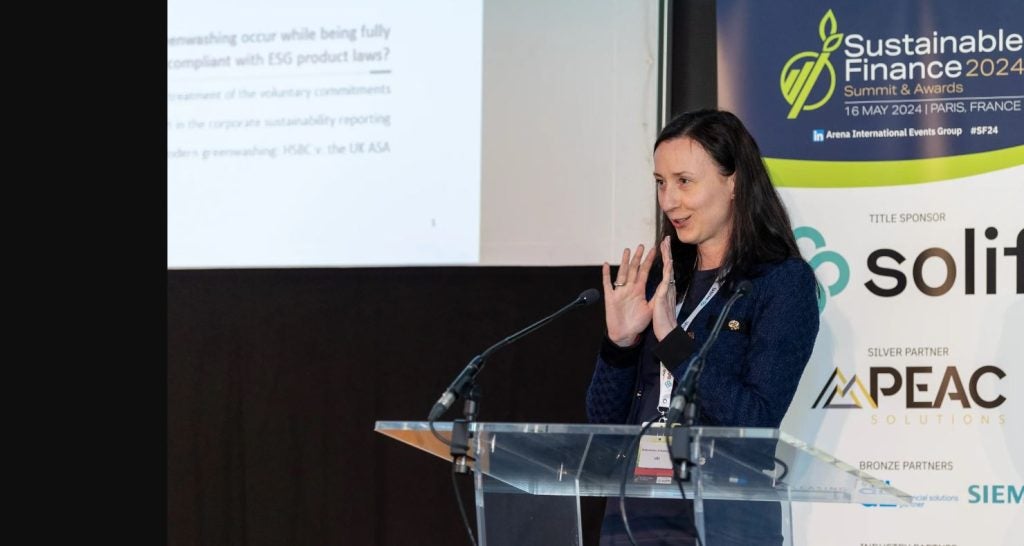
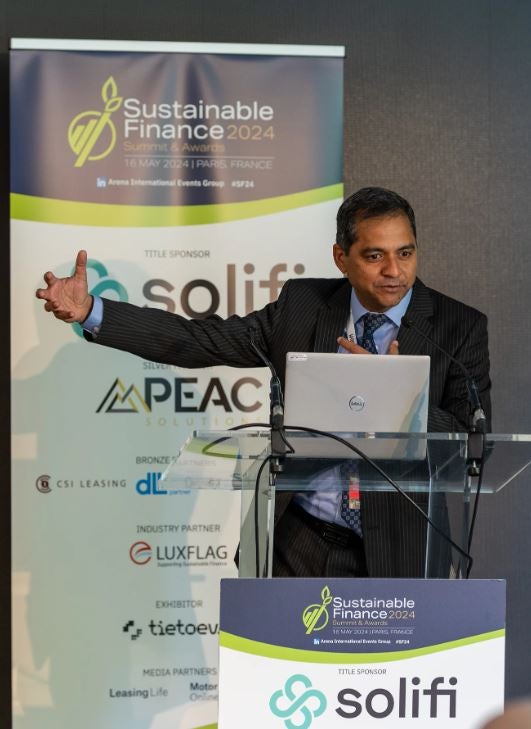


Looking forward: an editor’s perspective
European providers face several critical challenges in advancing corporate sustainable finance. A major issue is the lack of a single carbon price, which complicates investment decisions and creates uncertainty. Additionally, sustainable activities may be less economically attractive in terms of profitability, posing a significant hurdle for businesses. Unclear political signals and regulatory uncertainty further affect investment strategies and decision-making processes.
Another crucial challenge is the need to trace and improve the sustainability of the entire value chain, particularly regarding Scope 3 reporting. This involves managing indirect emissions that occur in a company’s value chain, which is often complex and resource-intensive. Encouraging local firms in emerging markets to adopt ambitious climate goals also remains a significant challenge, requiring a concerted effort to provide the necessary support and incentives.
High subsidies for fossil fuel production and use also present significant financial risks.
Addressing these challenges requires innovative strategies, robust governance, and a collective effort from policymakers, corporations, and financial providers. The summit underscored the need for clear political signals, supportive regulatory frameworks, and effective tools to enable businesses to navigate the complexities of sustainable finance.
As the green transition continues to gain momentum, events like the Sustainable Finance Summit 2024 play a crucial role in fostering dialogue, sharing insights, and driving the collective action needed to achieve a sustainable future.
Sustainable Finance Summit Awards 2024: winners announced in Paris
Sustainable Finance Summit 2024: shaping Europe’s transition finance landscape
Sustainable Finance Summit & Awards 2024 to spotlight key themes in green transition






